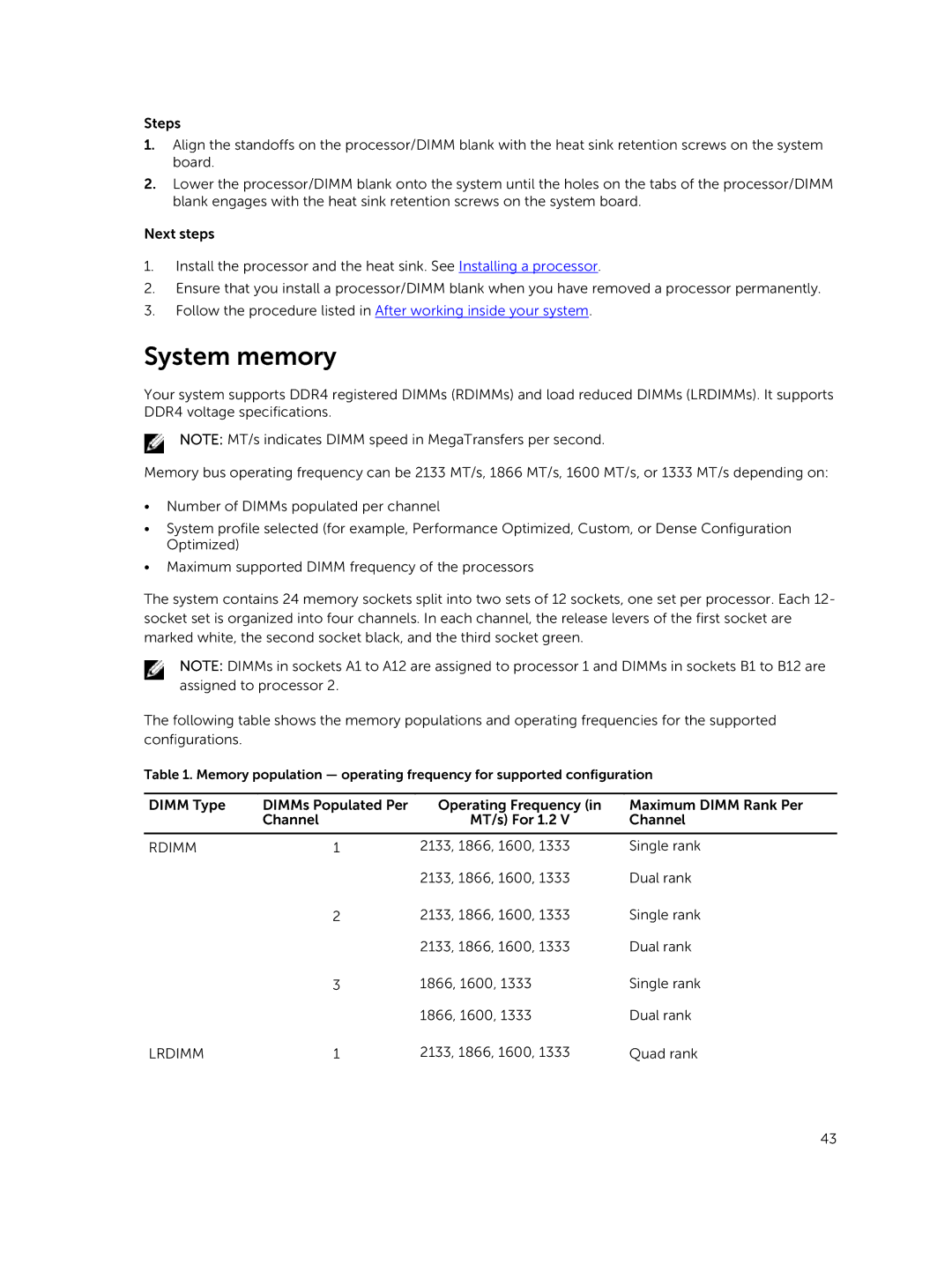
Steps
1.Align the standoffs on the processor/DIMM blank with the heat sink retention screws on the system board.
2.Lower the processor/DIMM blank onto the system until the holes on the tabs of the processor/DIMM blank engages with the heat sink retention screws on the system board.
Next steps
1.Install the processor and the heat sink. See Installing a processor.
2.Ensure that you install a processor/DIMM blank when you have removed a processor permanently.
3.Follow the procedure listed in After working inside your system.
System memory
Your system supports DDR4 registered DIMMs (RDIMMs) and load reduced DIMMs (LRDIMMs). It supports DDR4 voltage specifications.
NOTE: MT/s indicates DIMM speed in MegaTransfers per second.
Memory bus operating frequency can be 2133 MT/s, 1866 MT/s, 1600 MT/s, or 1333 MT/s depending on:
•Number of DIMMs populated per channel
•System profile selected (for example, Performance Optimized, Custom, or Dense Configuration Optimized)
•Maximum supported DIMM frequency of the processors
The system contains 24 memory sockets split into two sets of 12 sockets, one set per processor. Each 12- socket set is organized into four channels. In each channel, the release levers of the first socket are marked white, the second socket black, and the third socket green.
NOTE: DIMMs in sockets A1 to A12 are assigned to processor 1 and DIMMs in sockets B1 to B12 are assigned to processor 2.
The following table shows the memory populations and operating frequencies for the supported configurations.
Table 1. Memory population — operating frequency for supported configuration
DIMM Type | DIMMs Populated Per | Operating Frequency (in | Maximum DIMM Rank Per |
| Channel | MT/s) For 1.2 V | Channel |
|
|
|
|
RDIMM | 1 | 2133, 1866, 1600, 1333 | Single rank |
|
| 2133, 1866, 1600, 1333 | Dual rank |
| 2 | 2133, 1866, 1600, 1333 | Single rank |
|
| 2133, 1866, 1600, 1333 | Dual rank |
| 3 | 1866, 1600, 1333 | Single rank |
|
| 1866, 1600, 1333 | Dual rank |
LRDIMM | 1 | 2133, 1866, 1600, 1333 | Quad rank |
43
